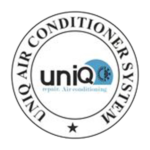Heat Pump Repair: Troubleshooting and Solutions
A heat pump is a versatile and energy-efficient HVAC system that provides both heating and cooling for your home. However, like any complex mechanical system, heat pumps can experience issues over time that may disrupt their performance. In this comprehensive guide, we will explore common causes of heat pump problems, provide step-by-step troubleshooting techniques to identify the source of the issue, and offer effective solutions to repair or restore your heat pump to optimal operation. By understanding the root causes and taking proactive measures, you can ensure that your heat pump continues to efficiently provide year-round comfort while minimizing energy consumption.
Table of Contents
- The Importance of a Reliable Heat Pump (200 words)
- Year-round heating and cooling
- Energy-efficient operation
- Impact on indoor comfort
- Long-term cost savings
- Common Causes of Heat Pump Problems (250 words)
- Refrigerant issues
- Electrical problems
- Thermostat malfunctions
- Airflow problems
- General wear and tear
- Troubleshooting Heat Pump Problems (300 words)
- Step 1: Identify the Type of Issue
- Step 2: Check for Refrigerant Issues
- Step 3: Inspect Electrical Components
- Step 4: Verify Thermostat Functionality
- Step 5: Examine Airflow and Ductwork
- Step 6: Address General Wear and Tear
- Effective Solutions to Repair Heat Pump Issues (250 words)
- Refrigerant recharge or repair
- Electrical component replacement
- Thermostat replacement or calibration
- Ductwork repair or cleaning
- Regular maintenance to prevent future problems
- Preventive Measures for Maintaining a Reliable Heat Pump (200 words)
- Regular professional maintenance
- Change or clean air filters regularly
- Protect the outdoor unit
- Maintain proper insulation and seal ducts
- Monitor and adjust thermostat settings
- When to Seek Professional Help for Heat Pump Issues (200 words)
- Complex refrigerant issues
- Extensive electrical problems
- Major component replacement or rewiring
- Warranty considerations
- Conclusion (100 words)
- The importance of a reliable heat pump
- The value of proactive troubleshooting and maintenance
- Ensuring year-round comfort and energy efficiency.
1. The Importance of a Reliable Heat Pump
A reliable heat pump is essential for several reasons:
Year-Round Heating and Cooling: A heat pump provides both heating and cooling, making it a versatile HVAC system suitable for year-round comfort.
Energy-Efficient Operation: Heat pumps are known for their energy efficiency, which can lead to significant long-term cost savings on utility bills.
Impact on Indoor Comfort: A malfunctioning heat pump can disrupt indoor comfort, leading to temperature fluctuations and discomfort.
Long-Term Cost Savings: A well-maintained heat pump is more likely to operate efficiently and have a longer lifespan, reducing the need for costly repairs or replacements.
2. Common Causes of Heat Pump Problems
Several factors can lead to problems with your heat pump:
Refrigerant Issues: Low refrigerant levels or refrigerant leaks can affect the heat pump’s ability to transfer heat effectively.
Electrical Problems: Electrical components, such as capacitors, relays, or wiring, can malfunction over time, disrupting the electrical flow within the heat pump.
Thermostat Malfunctions: A malfunctioning thermostat can result in inaccurate temperature readings and improper heat pump operation.
Airflow Problems: Issues with airflow, such as clogged filters or blocked ducts, can affect the heat pump’s ability to distribute conditioned air.
General Wear and Tear: Over time, all mechanical systems experience wear and tear, leading to decreased efficiency and performance.
Now, let’s explore each of these causes in detail and discuss how to troubleshoot them.
3. Troubleshooting Heat Pump Problems
Before seeking professional help, you can perform some troubleshooting steps to identify and potentially resolve the issue:
Step 1: Identify the Type of Issue:
- Determine the nature of the heat pump issue, such as inadequate heating or cooling, unusual noises, or no response from the system.
Step 2: Check for Refrigerant Issues:
- Inspect the heat pump for signs of refrigerant issues, such as frost or ice accumulation on the outdoor unit. Low refrigerant levels may indicate a leak.
Step 3: Inspect Electrical Components:
- Examine electrical components, including capacitors, relays, and wiring, for visible signs of damage or wear. Ensure all connections are secure.
Step 4: Verify Thermostat Functionality:
- Check the thermostat for proper operation. Verify that it is set to the desired temperature and mode, and ensure the batteries, if applicable, are functional.
Step 5: Examine Airflow and Ductwork:
- Inspect the air filters for clogs or dirt buildup. Check ducts for blockages, leaks, or damage that may hinder airflow.
Step 6: Address General Wear and Tear:
- Consider the age and maintenance history of your heat pump. Regular wear and tear may require maintenance or replacement of certain components.
By following these troubleshooting steps, you can often identify and resolve simple heat pump issues.
4. Effective Solutions to Repair Heat Pump Issues
To repair heat pump problems, consider the following solutions:
Refrigerant Recharge or Repair: If refrigerant levels are low or there are leaks, a qualified technician can recharge the refrigerant and repair any leaks.
Electrical Component Replacement: Malfunctioning electrical components, such as capacitors or relays, may need to be replaced.
Thermostat Replacement or Calibration: A malfunctioning thermostat may require replacement or calibration to ensure accurate temperature control.
Ductwork Repair or Cleaning: Addressing airflow problems may involve cleaning or repairing ductwork and ensuring proper insulation.
Regular Maintenance to Prevent Future Problems: Schedule annual professional maintenance to prevent future heat pump issues and maintain efficient operation.
5. Preventive Measures for Maintaining a Reliable Heat Pump
To maintain a reliable heat pump and avoid issues, consider these preventive measures:
Regular Professional Maintenance: Schedule annual maintenance with a qualified technician to keep your heat pump in top condition and catch potential problems early.
Change or Clean Air Filters Regularly: Replace

 Please enter your name and phone number below, We will get back to you soon.
Please enter your name and phone number below, We will get back to you soon.